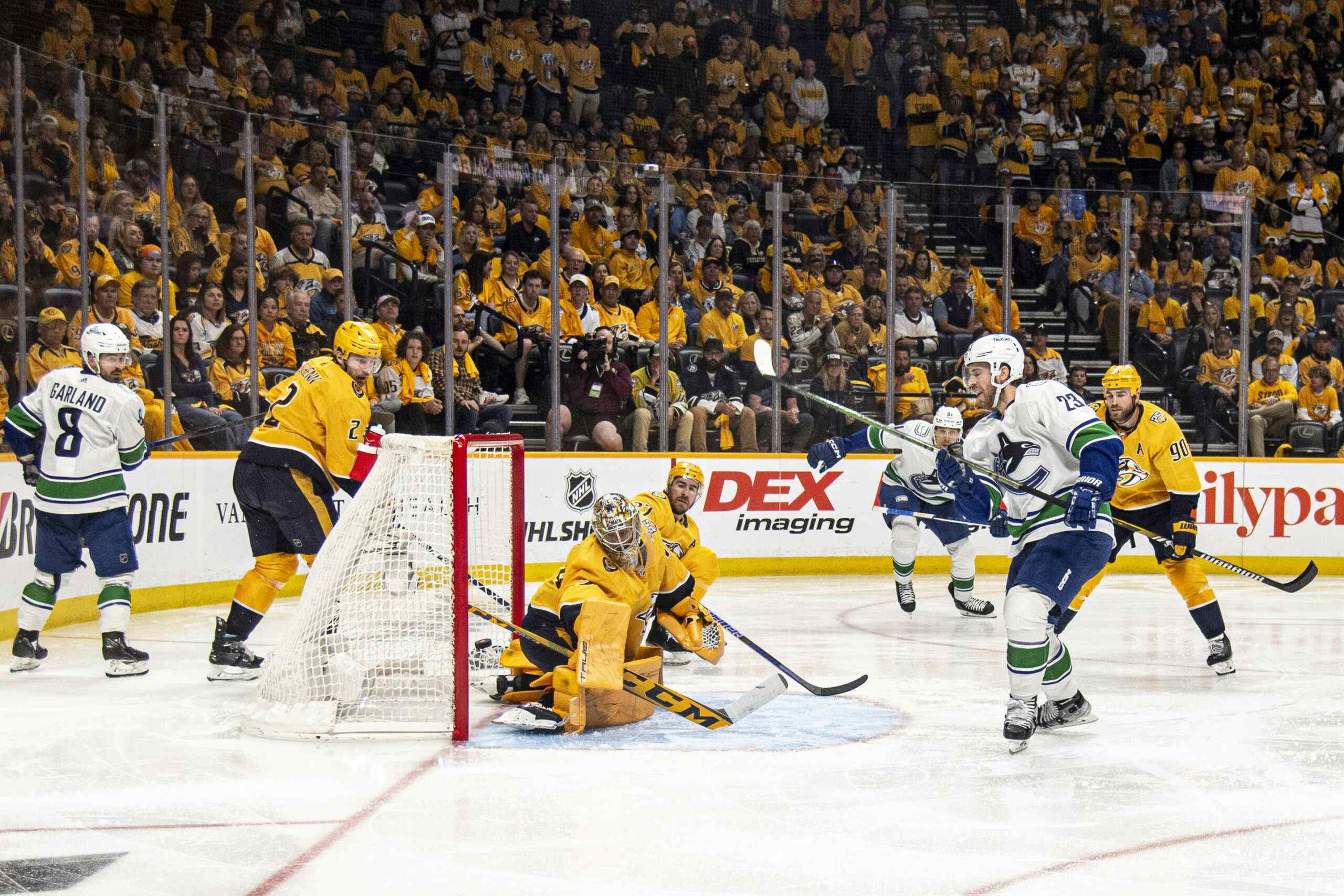Why the NHLPA’s Rejection of Realignment is Bad News for the Canucks

Donald Fehr Executive Director of the NHLPA, who on Friday rejected the NHL’s proposed realignment.
It’s a safe bet that the Canucks organization is particularly unhappy about it.
When Donald Fehr and the NHLPA rejected the NHL’s popular realignment plan, scrapping the plan at least for next hockey season, the Canucks cannot have been pleased. From my perspective as a Canucks fan, I’m disappointed. I was looking forward to seeing the Wild shipped out of the division, and to the Canucks playing in the same conference as their burgeoning rivals in California.
From my perspective as a hockey fan, however, it’s nice to see the NHLPA show some back-bone and with CBA negotiations being right around the corner, it makes sense for the union to secure every available bargaining chip in advance. Nonetheless, the Canucks are clearly among the league’s biggest losers in the wake of the NHLPA rejection. Let’s take a look at why:
The Stacked Western Conference
The Western Conference, as it’s currently composed, is simply stacked. Put it this way, in the East, the Ottawa Senators can hold down fifth in the conference at the mid-way point. Their goal differential is -8. Out west, that sort of stuff doesn’t fly, fifth place in the West is currently being held down by the Blackhawks, who are a +11 on the season.
The Canucks chances of making the postseason are better in their current conference (where 8 of 15, or 53.3% of teams make the postseason) than they would be in their realigned Western Conference (where 4 of 8, or 50% of teams would make the postseason). But the Canucks aren’t going to have issues making the postseason for a few years yet, so what matters for this team in the short-term is the postseason. The postseason road through the Western Conference (as it’s currently composed) is tougher now, than it would be in the new conference.
Why is this? Well, it’s because the Central Division of the Western Conference is flat out frightening. St. Louis, Detroit and Chicago are all legitimate cup contenders this season, and yet, at least one of those teams won’t enjoy home-ice advantage in the first round this season. Between the five best teams in the West (St. Louis, Chicago, Detroit, San Jose and Vancouver) and a couple of other lower-tier threats with elite defenses who no one wants to face in the first round (Los Angeles, Nashville), it’s clear that the Western Conference is going to be a house of horrors to get through. So, unless you’re the top-seed in the conference and get to beat up on the Stars or the Avalanche, your chances of going out in the first round despite holding home-ice advantage are much higher out West currently, than they would be in the rejected 8 team Western-most conference.
In the realigned conference, the Canucks would deal with San Jose and Los Angeles as the primary threats to their supremacy. Not to take anything away from those two, quality teams, but they’re both more appealing team’s to face in the playoffs than the likes of the three Central Division powers.
Travel
As Renaud Lavoie pointed out over the weekend, the Canucks would actually travel more in their realigned conference than they do at the moment. Aggregate distance aside, however, the travel burden would actually be lessened for the Canucks in the rejected conference than in their current division, because of time-zones, travel destinations, and playoff travel.
In their current division, the Canucks don’t share a time-zone with a single team. Three of their northwest division opponents play in Mountain Time, and the Wild play in Central Time which is two hours ahead. As such, the Canucks play only 47 games in the Pacific time-zone this season. In the proposed realigned conference, they’d play 3 more games per season in their own time-zone and on top of that, they’d get to visit SoCal 6 times per year, San Jose thrice and Phoenix three times. Spending an off day in Scottsdale, golfing in February, is an estimated one million times more desirable than making three winter trips to Minneapolis during the regular season.
Even more important to the Canucks, in terms of easing the travel burden, is postseason travel. It’s all about the playoffs for this team, and last season the Canucks had travelled well over 21,000 KM by the time the final four began. The Boston Bruins, in comparison, had travelled 2052 KM. Playing playoff rounds against Chicago and Nashville may make for entertaining hockey, but it definitely wears the team down. A couple of playoff rounds against the likes of San Jose, Calgary, Edmonton or Los Angeles, before two longer distance rounds, would certainly help to ease the wear and tear of playoff travel on the team. At the very least, it would serve to level the playing field somewhat between them and team’s in the current Eastern Conference.
The Window
The NHLPA’s rejection of the proposed four conferences, sadly, is an early warning sign that CBA negotiations might be bumpy. At the very least, the NHLPA’s rejection of realignment makes the specter of another NHL work-stoppage seem increasingly likely. For a team with championship aspirations like the Canucks, that is terrible news.
When you’re playing in a league with a hard cap-system, it’s nigh impossible to sustain the level of a championship contender indefinitely. At some point, your best players age and a rebuild becomes necessary unless you’re the Calgary Flames. At the moment, the Canucks are neither a particularly young team nor a particularly old team, but the Sedins will turn 32 this September and a number of core players come off the books in the summer of 2013. Their "championship window" is now.
Since the lockout, only 2 teams with an average-age above 28 have made the Stanley Cup Finals (the Red Wings in 08 + 09). They average age of the other post lockout cup finalists is 27.28. The Canucks roster at the moment carries an average age of 27.9, so they’re right in the sweet-spot age-wise for a championship team. Basically losing a full season to a work stoppage would be catastrophic to the championship hopes of the team’s current core, and that’s a lot more likely today than it was on Friday morning.
Recent articles from Thomas Drance





